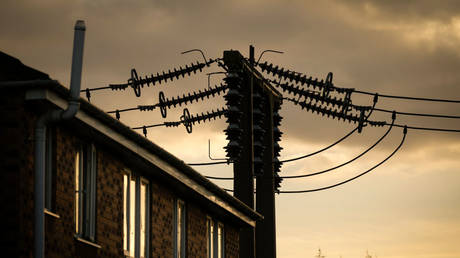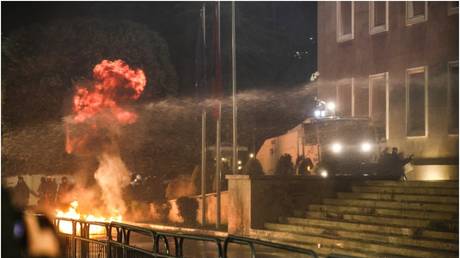
The head of the National Grid has warned that a “worst-case scenario” might see power cuts in January and February
The “deepest, darkest evenings” in January and February could be marked by three-hour blackouts, the head of the National Grid ESO, John Pettigrew, said on Monday, emphasizing that he was talking about a “worst-case” scenario linked to the energy crisis in continental Europe.
Speaking at the Financial Times’ Energy Transition Summit, he explained that if the weather turns extremely cold and if gas supplies to feed power stations are insufficient, the company will have to switch off gas and electricity in parts of the country. It will be happening “probably between 4pm and 7pm in the evenings on those weekdays when it’s really, really cold in January and February,” Pettigrew said.
He explained that “in the context of the terrible things that are going on in Ukraine” the company needs to assess the “potential risks.”
Normally, during the coldest months and extreme weather events, the UK imports gas and electricity from continental Europe. However, this year European countries are facing a severe energy crisis exacerbated by sanctions and a sharp decrease in Russian energy supplies.
Pettigrew stressed that, despite the risks involved, the National Grid’s “base case” remains unchanged: it suggests that there would be enough gas and electricity for Britain this winter.
According to the National Grid’s strategy, set to come into force on November 1, in case there are no electricity imports from continental Europe, the company will deploy its “mitigation strategies,” including dispatching “the retained coal units.”
In a “more extreme scenario,” involving “a hypothetical escalation of the energy crisis in Europe” and a deficit in gas, as well as in electricity supplies, the National Grid admits that there might be “interruptions to customers for periods.”
“Overall, this is likely to be a challenging winter for energy supply throughout Europe,” the company warned.
Any plans for scheduled power cuts in the UK must be approved by the government and the monarch.
Last week, the head of Russian energy giant Gazprom, Alexey Miller, said that Europe will survive this winter but the winters of 2023 and 2024 would demonstrate that the energy crisis “has not come for a short period of time and the causes of the energy crisis are systemic.”
President Vladimir Putin earlier likened the EU’s attempts to cut itself off from Russian fossil fuels to economic “suicide.”




